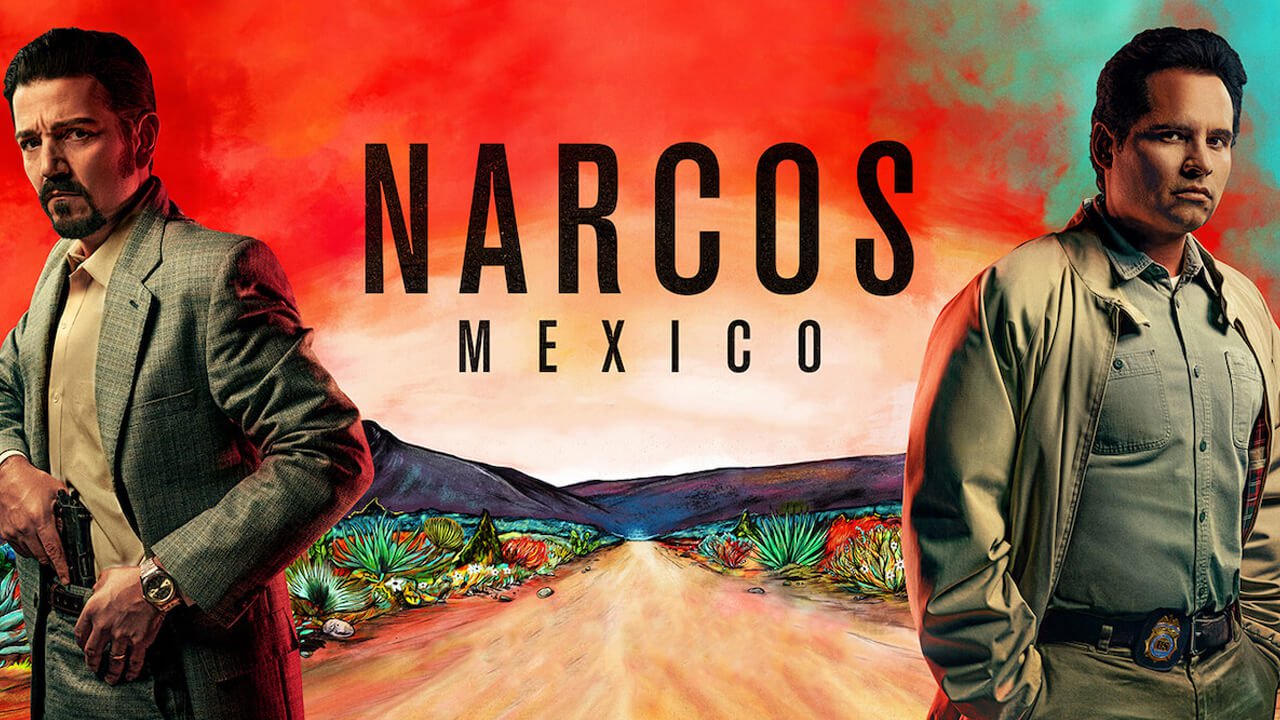Now we’ve hit blog number three, there’s probably two things you’ve learnt about me. The first would be that I have too much time on my hands. The second is that I spend a decent chunk of time watching shows on Netflix. Hopefully, by writing a blog post about a Netflix show I can validate this ‘hobby’ and mask the reality of how long I spend in a single week watching.
A simple google search of ‘Best Netflix shows’ will bring back a wealth of fantastic programs. Black Mirror, Stranger Things, House of Cards and The Crown there are hours of great content to pick from. With Disney due to release their own service, it’s not a shock that homegrown shows are what Netflix markets the most. Yet there is a glaring omission from top ten lists. A homegrown show, yet an afterthought, that is deserving of better treatment. Narcos and its successor Narcos: Mexico.
A King In The Making
In 2015 when Narcos first broke onto the scene it felt like everyone was talking about it. Escobar, Colombian cocaine, eighties nostalgia and cartels, the story captured viewer imagination. At a pace that never slowed it exposed the viewer to fantastic acting, explosive set pieces, riveting dialogue and a history we had heard of but didn’t really know. Most of the dialogue in Spanish during the show was a somewhat risk for the platform. Could Brits and Americans embrace a show not primarily in English?
For that first season they did, and in 2015 it was one of the platform’s biggest shows. Since then the show has had a consistent following. Enough admirers to already be renewed for another season, not enough to be talked about regarding must watch television. If this blog post has one aim, it’s getting you to add Narcos to your watch list. And give me an excuse for having not getting all those hours back.
The Story So Far
Once finished Narcos will cover the history of cocaine from its roots in Colombia to the ongoing drug war in Mexico. The war on drugs that started decades ago has no obvious end in sight. El Chapo, one of the current drug lords, is on trial in the US but cocaine continues to flood the border. Meanwhile, the death toll in Mexico sits at about one hundred and twenty thousand people, twenty-seven thousand missing. This does not include the ongoing impact in Colombia where the drug trade has been so interlinked with politics that a death toll is hard to accurately attribute. The scale of the story is why after four seasons we are still nowhere near present-day events.
In the beginning it was Escobar, the focus of the first two seasons. The rise of cocaine, US involvement in the war on drugs and the political impact on his home country of Colombia were the heart and soul of the story. Season three, the weakest of the show so far, focused on the Cali cartel and continued the narrative. A lot of viewers abandoned the show at this point. Major cast members moved on as their characters reached the conclusions of their stories. Without Escobar the show had admittedly lost much of its spark, like Breaking Bad without Walter White, The Sopranos without Tony Soprano or this blog without self depreciating humour there was something missing.
Last month Narcos returned for its fourth season, refitted as both a successor and companion to the first three seasons. This new entity Narcos: Mexico surrounds Diego Luna as Félix Gallardo, founder of the modern Mexican drug trade. His opposite number is Michael Peña as Kiki Camarena, an undercover DEA agent. We witness the story from the perspectives of these two characters, narration alongside to give a bigger insight into the history outside their viewpoint. Season four goes back in time, overlapping with Escobar and the Cali Cartel at the height of their powers. This can be a confusing time for viewers less switched on with ongoing events but reflects the reality of the history; forever coinciding. If the story were straightforward, it wouldn’t be worth retelling.
Why Is Narcos So Great?
Okay, why all the fuss and a dedicated blog post? Treading the fine line between enticing you to watch and avoiding spoilers, I’ll explain. There’s a saying that fact can be stranger than fiction. They base the stories of Narcos on real life, condensed and streamlined in places, but true in a rare sense of the word with television. Throughout archive footage is intertwined, and the output is an authentic, real insight into the history of drug trafficking. Impeccable sets, period appropriate clothes, characters and cars help never drag the viewer out of the moment. Wagner Moura’s Escobar performance is sensational, a gripping portrayal that balances the subtle flicks between monster and icon that define the character. Outside of this pick a performance that isn’t full of charm or intrigue. There are plenty to admire and choose from.
The consistency of output remains another advantage Narcos has over rivals. Stranger Things had an enjoyable but forgettable second season while House of Cards crumbled in quality long before all the allegations surrounding Kevin Spacey surfaced. Forgotten, Narcos continued to deliver strong seasons of content, each expanding the murky world of drugs, smuggling and cartels. While the viewer will have heard the name of Escobar countless times the history and journey is less known and riveting. The Sopranos, Game of Thrones and Breaking Bad are incredible, but despite witnessing impressive stories, they’re still fiction. The authenticity I spoke of before connects the viewer to the significance and impact of what they’re seeing. This is a genuine history and real society. The story is richer for it.
Where The Show Falls Short
One weakness of Narcos is there is no end user showcased. Hundreds of thousands of US customers remain anonymous off screen and invisible to the viewer. Yet it is these customers who fuel the torture, violence and lavish, brutal lifestyle at the heart of the show. This may be a piece of entertainment based on real life, but to fully understand the full picture there has to be a consequence. The lack of impact on the ground is a crucial missing element. The absence is easily explained but worth highlighting to any fans of the show. American audiences are thrilled by villainous and charismatic drug lords but showing their own citizens ravenous for the supply with no regard for the consequences? The entertainment would move into uncomfortable acknowledgement.
Adios
The question I always find fascinating with cases like Escobar or Gallardo is whether they know it can’t last forever. Every villain they introduce us to and, despite the horror of their acts, become attached to is certain to have a similar fate. After four seasons, a fifth to come, there is a pattern to the tales. Ambitious young men, more brutal, smarter and luckier than their rivals, ascending a mountain of cash, corpses and cocaine. This appetite for success overwhelms him and the mountain remains for another to climb. Are they naïve to how their stories are ending? Frequently a lifelong prison sentence or end to their life altogether… I think they know how it has to end, and that makes the story juicer for it.
You can also follow me on Facebook: https://www.facebook.com/jamesdammauthor/



Recent Comments